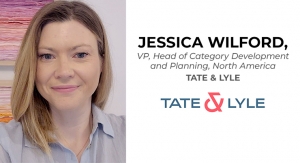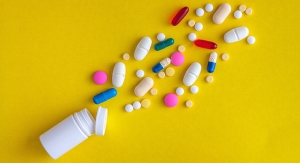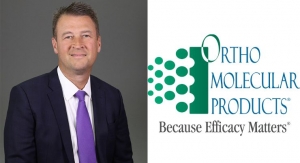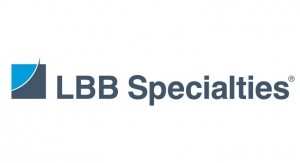By Mike Montemarano, Associate Editor, Nutraceuticals World03.12.20
Suzy, a technology platform that harnesses consumer data, recently held a webinar led by its founder, Matt Britton, to attempt to analyze the incredibly fluid impact on consumer trends seen so far by the Coronavirus pandemic.
While the webinar was conducted on March 5, a few days before the U.S. saw a boom in state of emergency declarations, exponential growth of Coronavirus cases and deaths, and a spike in the perceived severity of the crisis, Britton’s projections ultimately hinged on the situation worsening quickly, and he provided a few points that may be relevant for the dietary supplement industry.
The data gathered came from a survey of 860 U.S. consumers, weighted for census representation inclusive of age, gender, ethnicity, and religion.
“This is such a fluid situation that some of the results you see today may be skewed by news from last night, or news from today,” Britton said. “Maybe this is something we should do on an ongoing basis.”
Fear
According to Britton’s survey, fear of the Coronavirus is concentrated more heavily in coastal regions of the country.
“In addition to the prevalence of cases there, the fear barometer is higher in left-leaning states,” Britton said. “We don’t know if this has to do with discrepancies in the media outlets. It also depends heavily on who you talk to, what day it is, their age, and their parental status.”
Parents tend to be twice as concerned as non-parents, Britton said. They are also 71% more likely to limit spending, more likely to withdraw money from bank accounts, and are engaging in more home and office disinfection.
“Behaviors are changing,” Britton said. “Obviously, people are staying in more, and people are now super-conscious of their hygiene. 20% of consumers are spending more on toiletries, cleaning supplies, food, groceries, and medicine.”
According to Britton, the fear of the unknown translates to consumers experimenting less in shopping. This could signify that it might not be the best time for companies to give old conventions a shake-up.
“Consumers are 25% less likely to try new brands during this crisis,” Britton said. “They’re shifting away from what they want to what they need, and they’re in survival mode. They don’t want to take a risk on a new product that might be undreliable. Brand trust is playing out here especially in the personal care, food, and beverage space. This really popped out to me because we live in a world where consumers seem to be chasing the next big thing.”
Trust
Brands will need to understand the degree of work needed to establish consumer trust in the efficacy of products, regardless of whether they are being purchased as preventative measures related to the crisis.
For any preventative product, including those with claims of immune system support, it’s abundantly clear that leveraging the greatest wealth of substantiated research is paramount. This means that nutraceutical companies are clearly safer by not broaching the subject of immunity in relation to the ongoing global pandemic.
Emergen-C, which was widely popularized and challenged in a class-action suit on cold and flu prevention claims, was a top product that consumers listed as a tentative purchase in the Suzy survey.
However, a public health crisis of this magnitude will likely serve as a stress test for the reputability of supplement and ingredient companies as a whole depending on how they react. Capitalizing on any immunity-related research will likely result in harmful blowback due to its propensity to lead consumers away from the latest institutional knowledge.
The supplement industry must acknowledge that there is no known way to cure or prevent coronavirus, and that supplements are not drugs. Companies should be proactive in monitoring any advertisements that claim otherwise or even mention the coronavirus. The UNPA, CRN, AHPA, and CHPA will be doing so according to their joint statement.
FDA, along with the FTC, has already sent out its first round of warning letters to several companies accused of making fraudulent Coronavirus claims, which mislead the public and jeopardize public health. The illegality of making claims that a dietary supplement can cure, prevent, or treat any disease is on the minds of conscious nutraceutical consumers.
Nutraceutical brands’ only opportunity to maintain trust is to exhibit leadership in guiding consumers to the CDC, WHO, and other leading global healthcare authorities. In doing so they can maintain status as trusted sources, avoid breaking the law, and contribute to public health.
Most millennials are seeking information through social media. Britton said that, throughout his research, he has come to understand that consumers find Facebook relatively untrustworthy, and that Twitter is the most trusted social media platform, which “came out even more through this research,” indicating the efficacies of different outreach platforms.
“Consumers are saying that they trust scientists and doctors, sources that they might not have the best access to,” Britton said. “That’s the kind of equity that can pull brands through if there’s a more sustained downcycle as a result of this.”
Global Supply Chains
The Suzy survey appears to confirm the supplement industry’s fears that consumers harbor perceptions of risk in relation to global supply chains. Due to regulatory lenience, the nutraceutical industry has long been held under growing scrutiny pertaining to supply chain integrity, and its’ safe to anticipate that scrutiny increasing in the long-term.
69% of those surveyed are concerned about U.S. brands sourcing ingredients from China. Half of the respondents said sourcing from China was already impacting their purchasing decisions. 22% of those surveyed said they’re checking company websites for more information on supply chains, and 20% of consumers are starting to consider not buying products sourced from China.
“This is one of those points where there’s perception, and then there’s reality,” Britton said. “Consumers perceive that, somehow, components or ingredients from China might bring the disease across seas and leave them exposed.”
“Is it gonna eventually go back to how it was post-crisis? We’ll have to wait and see,” Britton continued. “There have been plenty of geopolitical winds in the face of this from the current administration and what we’re hearing about our relationship with China.
It’s tentatively possible that domestically-made products could see a rise in popularity for the long-term, Britton said.
Everything Old is New
“Everything old is new again,” Britton said in reference to the psyche of the U.S. consumer in the wake of the crisis.
It certainly rings true for point of sale.
Consumers, perhaps counterintuitively, are buying more items in person at brick-and-mortar stores than online. “They don’t want to count on an order and have it not show up,” Britton said. “This notion of control and doing everything they can to protect themselves and their family goes part and partial to them willing to wait in line and expose themselves to hundreds or thousands of people in line to stock up. They’re going away from amazon and towards the traditional wholesale buying, and it’s driven by the perception of consumers being in control.”
Time will tell whether bulk-buying in person will continue post-crisis, however, it seems likely given anecdotal evidence, such as a growth in consumers signing up for memberships at various wholesalers.
It also appears to hold water for apparent drawbacks from the surge toward organic products in cleaning supplies.
"42% of consuemrs purchased a prevention product they hadn't in the past," Britton said. "15% of consumers using organic cleaning products are trending toward the heavy, chemical-based stuff during hte time of crisis. Consumers are going back to the tried and true in spite of the organic products trend."
Another noteworthy trend has to do with companies adapting to restrictions on travel. As highlighted first by Expo West and then by a slew of other upcoming events, conventions on the whole are taking a massive hit.
In place, for the most part, are virtual showrooms. The success or failure of this new adaptation in the nutraceutical industry could largely dictate how major companies look at travel expenses, conventions, education, and other face-to-face interactions in the future.
While the webinar was conducted on March 5, a few days before the U.S. saw a boom in state of emergency declarations, exponential growth of Coronavirus cases and deaths, and a spike in the perceived severity of the crisis, Britton’s projections ultimately hinged on the situation worsening quickly, and he provided a few points that may be relevant for the dietary supplement industry.
The data gathered came from a survey of 860 U.S. consumers, weighted for census representation inclusive of age, gender, ethnicity, and religion.
“This is such a fluid situation that some of the results you see today may be skewed by news from last night, or news from today,” Britton said. “Maybe this is something we should do on an ongoing basis.”
Fear
According to Britton’s survey, fear of the Coronavirus is concentrated more heavily in coastal regions of the country.
“In addition to the prevalence of cases there, the fear barometer is higher in left-leaning states,” Britton said. “We don’t know if this has to do with discrepancies in the media outlets. It also depends heavily on who you talk to, what day it is, their age, and their parental status.”
Parents tend to be twice as concerned as non-parents, Britton said. They are also 71% more likely to limit spending, more likely to withdraw money from bank accounts, and are engaging in more home and office disinfection.
“Behaviors are changing,” Britton said. “Obviously, people are staying in more, and people are now super-conscious of their hygiene. 20% of consumers are spending more on toiletries, cleaning supplies, food, groceries, and medicine.”
According to Britton, the fear of the unknown translates to consumers experimenting less in shopping. This could signify that it might not be the best time for companies to give old conventions a shake-up.
“Consumers are 25% less likely to try new brands during this crisis,” Britton said. “They’re shifting away from what they want to what they need, and they’re in survival mode. They don’t want to take a risk on a new product that might be undreliable. Brand trust is playing out here especially in the personal care, food, and beverage space. This really popped out to me because we live in a world where consumers seem to be chasing the next big thing.”
Trust
Brands will need to understand the degree of work needed to establish consumer trust in the efficacy of products, regardless of whether they are being purchased as preventative measures related to the crisis.
For any preventative product, including those with claims of immune system support, it’s abundantly clear that leveraging the greatest wealth of substantiated research is paramount. This means that nutraceutical companies are clearly safer by not broaching the subject of immunity in relation to the ongoing global pandemic.
Emergen-C, which was widely popularized and challenged in a class-action suit on cold and flu prevention claims, was a top product that consumers listed as a tentative purchase in the Suzy survey.
However, a public health crisis of this magnitude will likely serve as a stress test for the reputability of supplement and ingredient companies as a whole depending on how they react. Capitalizing on any immunity-related research will likely result in harmful blowback due to its propensity to lead consumers away from the latest institutional knowledge.
The supplement industry must acknowledge that there is no known way to cure or prevent coronavirus, and that supplements are not drugs. Companies should be proactive in monitoring any advertisements that claim otherwise or even mention the coronavirus. The UNPA, CRN, AHPA, and CHPA will be doing so according to their joint statement.
FDA, along with the FTC, has already sent out its first round of warning letters to several companies accused of making fraudulent Coronavirus claims, which mislead the public and jeopardize public health. The illegality of making claims that a dietary supplement can cure, prevent, or treat any disease is on the minds of conscious nutraceutical consumers.
Nutraceutical brands’ only opportunity to maintain trust is to exhibit leadership in guiding consumers to the CDC, WHO, and other leading global healthcare authorities. In doing so they can maintain status as trusted sources, avoid breaking the law, and contribute to public health.
Most millennials are seeking information through social media. Britton said that, throughout his research, he has come to understand that consumers find Facebook relatively untrustworthy, and that Twitter is the most trusted social media platform, which “came out even more through this research,” indicating the efficacies of different outreach platforms.
“Consumers are saying that they trust scientists and doctors, sources that they might not have the best access to,” Britton said. “That’s the kind of equity that can pull brands through if there’s a more sustained downcycle as a result of this.”
Global Supply Chains
The Suzy survey appears to confirm the supplement industry’s fears that consumers harbor perceptions of risk in relation to global supply chains. Due to regulatory lenience, the nutraceutical industry has long been held under growing scrutiny pertaining to supply chain integrity, and its’ safe to anticipate that scrutiny increasing in the long-term.
69% of those surveyed are concerned about U.S. brands sourcing ingredients from China. Half of the respondents said sourcing from China was already impacting their purchasing decisions. 22% of those surveyed said they’re checking company websites for more information on supply chains, and 20% of consumers are starting to consider not buying products sourced from China.
“This is one of those points where there’s perception, and then there’s reality,” Britton said. “Consumers perceive that, somehow, components or ingredients from China might bring the disease across seas and leave them exposed.”
“Is it gonna eventually go back to how it was post-crisis? We’ll have to wait and see,” Britton continued. “There have been plenty of geopolitical winds in the face of this from the current administration and what we’re hearing about our relationship with China.
It’s tentatively possible that domestically-made products could see a rise in popularity for the long-term, Britton said.
Everything Old is New
“Everything old is new again,” Britton said in reference to the psyche of the U.S. consumer in the wake of the crisis.
It certainly rings true for point of sale.
Consumers, perhaps counterintuitively, are buying more items in person at brick-and-mortar stores than online. “They don’t want to count on an order and have it not show up,” Britton said. “This notion of control and doing everything they can to protect themselves and their family goes part and partial to them willing to wait in line and expose themselves to hundreds or thousands of people in line to stock up. They’re going away from amazon and towards the traditional wholesale buying, and it’s driven by the perception of consumers being in control.”
Time will tell whether bulk-buying in person will continue post-crisis, however, it seems likely given anecdotal evidence, such as a growth in consumers signing up for memberships at various wholesalers.
It also appears to hold water for apparent drawbacks from the surge toward organic products in cleaning supplies.
"42% of consuemrs purchased a prevention product they hadn't in the past," Britton said. "15% of consumers using organic cleaning products are trending toward the heavy, chemical-based stuff during hte time of crisis. Consumers are going back to the tried and true in spite of the organic products trend."
Another noteworthy trend has to do with companies adapting to restrictions on travel. As highlighted first by Expo West and then by a slew of other upcoming events, conventions on the whole are taking a massive hit.
In place, for the most part, are virtual showrooms. The success or failure of this new adaptation in the nutraceutical industry could largely dictate how major companies look at travel expenses, conventions, education, and other face-to-face interactions in the future.




























